
 Not my feet.
Not my feet. Knowing exercise improves mental stamina, memory, and concentration certainly makes it even more compelling. Do you have an exercise routine that fits into your work life? Please share!
 In case you need yet another reason to exercise, according to Robert Pozen, author of Extreme Productivity, "the latest research shows that a regular exercise routine can make you happier, smarter, and more energetic," which in turn, leads to an improvement in productivity. Even low intensity exercise counts. If you want to learn more about the science behind this, check out his article, Exercise Increases Productivity. (By the way, this concept echoes some of Gregory Ciotti's advice, "Manage your health," from my previous "C" post.)  Not my feet. Not my feet. A recent Harvard Business Review article by Ron Friedman reaffirms the benefits exercise has on our work. Yet for many of us, time feels like an obstacle. "What we really mean when we say we don’t have time for an activity," Friedman says, "is that we don’t consider it a priority given the time we have available." So true! And tomorrow's post happens to be about time and priorities. . . . Knowing exercise improves mental stamina, memory, and concentration certainly makes it even more compelling. Do you have an exercise routine that fits into your work life? Please share!  Do you consider "checking social media" an important task? How about posting Facebook updates or sending tweets multiple times throughout the day? If so, you may be guilty of digital procrastination. (I was unbelievably excited to learn there was an actual name for this condition!) Digital procrastination is an enemy of productivity, because although you *feel* like you're doing something useful, most of the time, you're not. As Jonathan Fields says in a Psychology Today article, "...when you spiral through every known mode of communication hundreds of times a day, you may be busy as hell, but you damn sure aren't productive. At least nowhere near the level you could be. You've just created the illusion of productivity." You can look up from hours of clicking/reading/posting online, and think--wow! Where did the afternoon go? Here are a three ideas on preventing this type of procrastination:  Not a ghost typing. Not a ghost typing. 1. Establish certain times of day to check social media (and email). I decided to try this after realizing how much time I wasted. (See my time chart in A is for Analyze.) Although experts recommend not starting your day with email and social media, it made me feel vaguely uneasy that I was missing something important if I didn't. So now I do a quick check in the morning, some updates at lunch, and a bit more time as needed (including answering longer emails) at the end of the day when my real work is done. I tracked this over a week in March (to compare to my week in January) and it freed up about twenty minutes a day! (A short term experiment, but still.) 2. Set a timer for social media breaks. I haven't tried this (yet) because I realized it wasn't the length of time I spent, but the frequency of checking social media and email that was the problem. I might only spend 3-4 minutes at a time, but I was doing it a gazillion times a day. A timer can certainly help raise awareness as the minutes "click" by. 3. Try a software program. If you like technology tools, you can use a program like Freedom to change your habits. Freedom is "Internet blocking productivity software." For $10, you can "turn Freedom on, tell Freedom how long you'd like to focus, and you're offline and able to work. If you need to cheat and get back online, you can reboot." That's certainly one way to break a social media habit! Do you control the amount of time you spend checking social media and email each day? Do you feel like it interferes with your work? And... how are you enjoying A to Z so far?
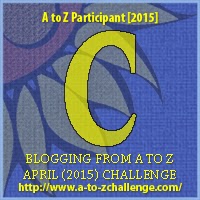 The Science of Productivity. 15 Habits of Supremely Happy People. This Is Your Brain on Porn, Junk Food, and the Internet. Do these article topics interest you? If yes, then you can join me and the 30,000 other people that read Gregory Ciotti's blog, Sparring Mind, which he started in November, 2013. "You could say that Sparring Mind started as a collection of open letters to myself on doing better work. This is what I learned, and this is why it matters," Ciotti explains. "The earliest essays are just cleaned up notes. As luck would have it, people appreciated those notes, and I in turn spent more time writing them--a blog was born!" I was thrilled that Ciotti agreed to answer a few questions about leading a more productive life. An interview with Gregory CiottiDo you think productivity issues differ for creative people? If so, how? Yes, because insight and inspiration cannot be scheduled, but you have to get the work done on time just like everyone else. When I was working in the courthouse I was very "productive," but it took zero imagination. Now being productive sometimes means reading or staring at a wall--I need time to get the ideas. So when I sit down to do the work, I want to maximize my time; that's how you keep output high without killing that downtime you need for thinking. Creative people therefore are most dependent on schedules, perhaps ironically. They need to stabilize everything else in their life, so they can be aggressive and novel on the creative front.  What are your top productivity tips? They go in this order: 1.) Manage your health--you'll thrive by managing your sanity and well-being, not by managing your "productivity." 2.) Manage your energy--work when you're hot and don't let go, and when you need to step away, do it. Know the difference between "done work" and "great work." 3.) Manage your environment--for people who struggle with procrastination, they need to look at the first two points before thinking about this. Then you should cultivate focus by managing your environment. Take control of what's around you: reduce distractions, increase friction to slack off, and find a place that becomes associated with work, even if you have to get out of the house. This will do most of the heavy lifting.
B is for Beginning: Wisdom from Newton, Hemingway, and Others about the Power of Getting Started4/2/2015
Beginning can be tough...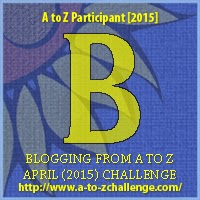 Let’s say you decide that on Monday morning, bright and early, you'll begin writing the next chapter of your novel. Or walk on the treadmill. Or type the email you’ve been dreading. But then a funny thing happens. Monday morning rolls around and it no longer feels like the best time to tackle that particular task. Getting started is often the hardest part of a project, but beginning is obviously a necessary step to finishing! James Clear refers to Newton’s First Law of Motion relating to productivity: an object in motion stays in motion. Beginning, then, sets us in motion and helps us to make progress. “Having the courage to start is more important than succeeding,” Clear says, “because the people who consistently get started are the only ones who can end up finishing anything.” How can you make first steps easier? |
| A list of helpful links from NaNoWriMo's Young Writers Program Online resources for teen writers from The League of Extraordinary Writers A Young Authors guide from NewPages |
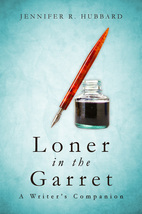







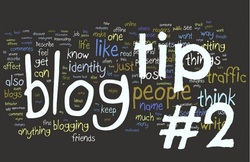
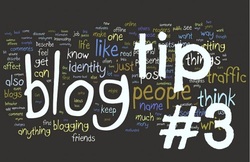
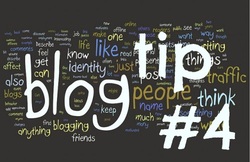

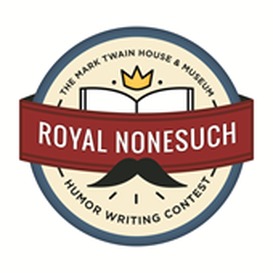
March 2025
January 2025
December 2024
October 2024
September 2024
August 2024
July 2024
June 2024
May 2024
April 2024
March 2024
February 2024
January 2024
December 2023
November 2023
October 2023
September 2023
August 2023
June 2023
May 2023
April 2023
March 2023
February 2023
January 2023
December 2022
November 2022
October 2022
September 2022
August 2022
July 2022
June 2022
May 2022
April 2022
March 2022
February 2022
November 2021
October 2021
September 2021
August 2021
July 2021
June 2021
May 2021
April 2021
March 2021
December 2020
October 2020
September 2020
August 2020
July 2020
June 2020
May 2020
April 2020
March 2020
February 2020
January 2020
December 2019
November 2019
October 2019
September 2019
August 2019
May 2019
April 2019
March 2019
February 2019
January 2019
December 2018
October 2018
September 2018
June 2018
May 2018
April 2018
March 2018
February 2018
January 2018
November 2017
October 2017
September 2017
August 2017
July 2017
June 2017
May 2017
April 2017
March 2017
February 2017
January 2017
December 2016
November 2016
October 2016
September 2016
August 2016
July 2016
June 2016
May 2016
April 2016
March 2016
February 2016
January 2016
December 2015
November 2015
October 2015
September 2015
August 2015
July 2015
June 2015
May 2015
April 2015
March 2015
February 2015
January 2015
December 2014
November 2014
October 2014
September 2014
August 2014
July 2014
June 2014
May 2014
April 2014
March 2014
February 2014
January 2014
December 2013
November 2013
October 2013
All
Agent
A To Z Blogging Challenge
Banned Books Week
Black Flowers White Lies
Bookbub
Book Cover
Book Marketing
Books
Celebration Blog Hop
Censorship
Character Development
Cliffhangers
Contagious Disease
Contest
Creativity
Denimday
Ecosystem
Edna St. Vincent Millay
Fear
Freelance Writing
Giveaway
Guest Post
Hero Lost Anthology
Holidays
Instagram
Interview
Island Trees
Iswg
Iwsg
Journals
Julie Matysik
Karate
Lies
Literacy
Liza Fleissig
Maya Angelou
Nanowrimo
Novels In Verse
One Teen Story
Organization
Pandemic
Paying Markets
Piri Thomas
Poetry
Point Of View
Power Of Language
Prod
Productivity
Project Runway
Quarantine
Quotes
Research
Revision
SCBWI
Setting
Sky Pony
Social Media
Stephen King
Suspense
Teen Tuesday
Teen Writers
The Last Ship
Thriller
Tom Petty
Twitter
Vision Boards
Voyagers Anthology
WriteOnCon
Writers Block
Writers For Hope
Writing
Writing Markets
Writing Resources
Writing Workshops
YA DASH
YASH